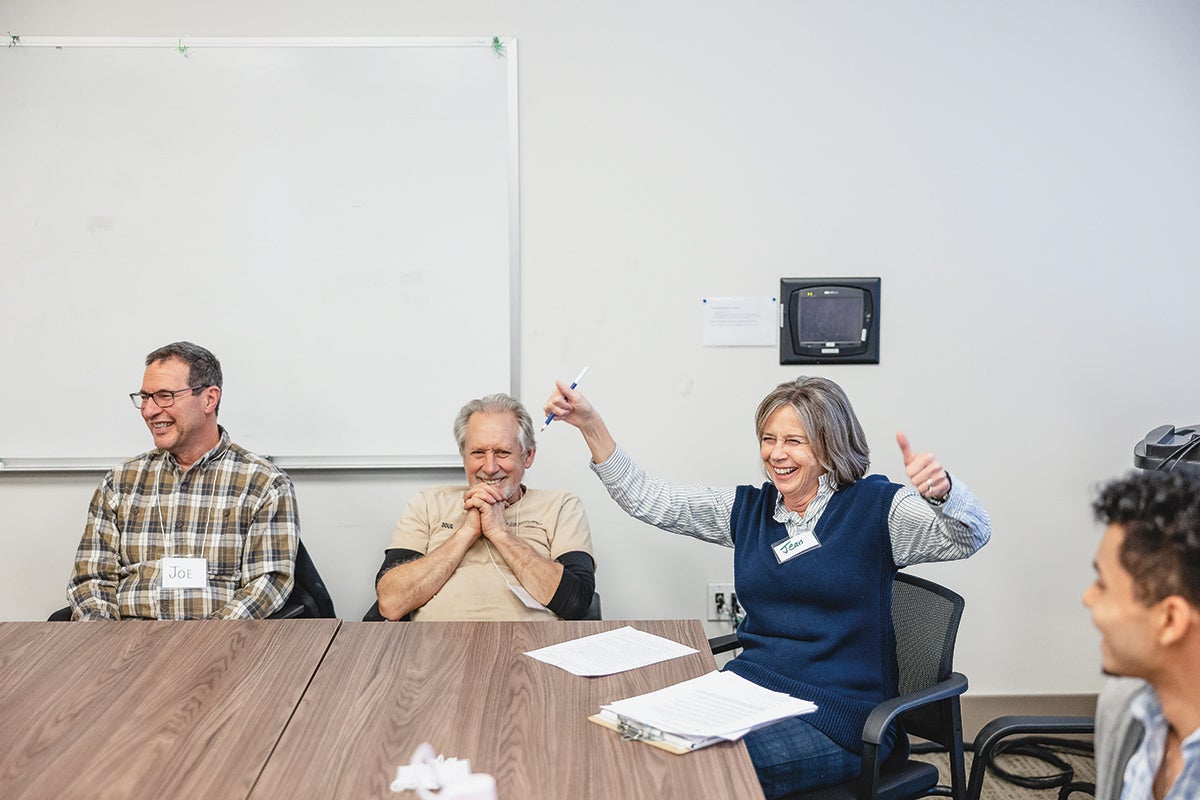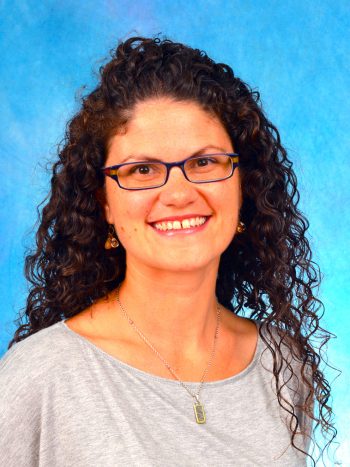 Students major in communication sciences, with a concentration in communication disorders. Communication disorders students complete 45 credit hours of required courses for the major/concentration. This coursework includes study in communication sciences and disorders, psychology, English/linguistics, as well as statistics and research design.
Students major in communication sciences, with a concentration in communication disorders. Communication disorders students complete 45 credit hours of required courses for the major/concentration. This coursework includes study in communication sciences and disorders, psychology, English/linguistics, as well as statistics and research design.
Following completion of an undergraduate degree, students can pursue a master’s degree in speech-language pathology. A master’s degree typically requires two additional years of study beyond the bachelor’s degree. Below you will find a recommended sequence of courses for an undergraduate degree in communication disorders.
A master’s degree is the entry level degree for professional clinical practice in speech-language pathology. Thus, for many students, an undergraduate degree in communication disorders is a pre-professional degree in preparation for graduate study. As such, the undergraduate coursework in the communication disorders curriculum emphasizes the basic processes and acquisition of normal communication in children and adults. Graduate study then focuses on the study of disordered communication.
Many students pursue undergraduate study in communication disorders as preparation for further study or in conjunction with study in other fields. For example, one can combine a major in communication disorders with a major in sociology or psychology or a minor in gerontological studies. For students interested in academic or research careers, investigation in the field of communication disorders is often done alongside investigation of normal human behavior. For example, one might study the word learning of children with normal language as well as children with language impairments.
Declaring a Major
If you wish to declare a major in Communication Sciences, obtain a Major Declaration for in the Office of Undergraduate Studies (Sears 357). Complete the form, then contact the Department of Psychological Sciences Chair, Dr. Greene (rlg2@case.edu). Dr. Greene will meet with you for approximately 15 minutes to discuss the major requirements and to assign a major advisor.
To achieve Gold status, our chapter:
- Increase awareness of communication sciences and disorders (CSD) on more than 135 local college campuses and communities across the country—primarily through virtual platforms
- Increase advocacy efforts by sending more than 9,500 letters to state and federal legislators
- Provide scholarships to students in CSD programs by contributing more than $24,000 to the ASHFoundation’s NSSLHA Scholarship
- Support CSD-related organizations by donating more than $64,000 and approximately 20,000 hours of chapter members’ time
“National NSSLHA Chapter Honors are awarded to affiliated NSSLHA chapters that demonstrate an outstanding effort to support National NSSLHA’s mission to inspire, empower, and support students in communication sciences and disorders programs.”
The National Student Speech Language Hearing Association (NSSLHA) is the only national student organization for pre-professionals studying communication sciences and disorders (CSD) recognized by the American Speech-Language-Hearing Association (ASHA). Established in 1972, National NSSLHA is headquartered in Rockville, Maryland, and supports 11,700+ members and 340+ chapters at colleges and universities nationwide.
Click here for the CWRU Undergraduate Communication Sciences Handbook
Undergraduate Communication Sciences News and Events
Connecting—With and Without Words Fostering communication and community for people with neurogenic disorders
Every Monday, nearly 35 people come together for a program on the edge of campus, drawn by camaraderie, a compassionate environment and a desire to communicate better as they live with a nervous-system disorder that makes speaking difficult. For years, many members of this Case Western Reserve University program, known...
Lauren Calandruccio receives 2025 CAPCSD Excellence in Diversity Award
Professor of Communication Sciences Lauren Calandruccio and her collaborator Jessica Sullivan, assistant professor at Hampton University, have been named recipients of the 2025 Council of Academic Programs in Communication Sciences and Disorders (CAPCSD) Excellence in Diversity Award. This award recognizes outstanding contributions to the field of communication sciences and disorders,...
Congratulations Guanyu Wei and Cassandra Lopez for receiving a CWRU CAS GSSCE Award!
Both Wei and Cassandra, first year PhD students in COSI, were notified on Friday that they received a CAS GSSCE Award from the Office of the Dean in the amount of $1000 each to support their research. The COSI faculty are extremely proud of these students for not only submitting their...
Helen Long brings a lifetime desire to help children to CWRU
Helen Long grew up wanting to help children hear and to be heard … and she’s doing just that. Long, an assistant professor in the communication sciences program of the Department of Psychological Sciences, has known since the age of five that she wanted to be a speech-language pathologist (SLP)....
Meet new faculty member in the College of Arts and Sciences
Helen L. Long Assistant Professor Psychological Sciences Helen L. Long Though Helen Long knew she wanted to be a speech-language-pathologist as a child, it wasn’t until she began working in the field that she realized her true passion was for research. With a PhD from the University of Memphis, a master’s from Florida...
College faculty featured in research and tech videos
The University Marketing and Communications video team has created several short videos that promote various researchers and their works to audiences inside and outside of CWRU. Featured on the university’s YouTube channel, several faculty members of the college are represented. View Lauren Calandruccio's video here
Arab American Heritage Month: Meet Diala Izhiman
April is Arab American Heritage Month, a time to celebrate the rich culture and contributions of the diverse population of Arab Americans in the United States. It’s the third year that the month has been formally recognized by the federal government. To recognize the occasion, The Daily is putting...
CWRU’s NSSLHA named chapter of the year
The Case Western Reserve chapter of the National Student Speech-Language-Hearing Association (NSSLHA) was awarded the 2022 Chapter of the Year by the American Speech-Language-Hearing Association and national NSSLHA organization. There are more than 340 chapters across the United States and the CWRU chapter was recognized for helping to increase awareness...
American Sign Language Club focuses on advocacy during Deaf Awareness Month
The American Sign Language Club aims to increase advocacy on campus and push for more accessible courses during September for Deaf Awareness Month. Members of the Case Western Reserve University community can follow the organization’s efforts and learn more about the topic on Instagram. Throughout the month, the organization will...








